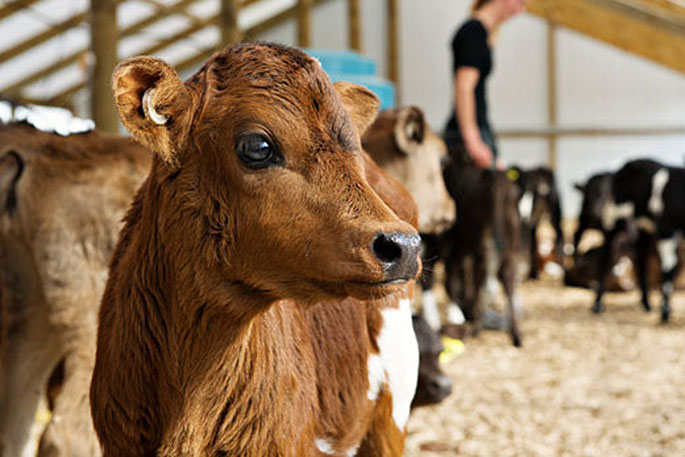Bay of Plenty farmers, schools, businesses and organisations are some of many who are doing their bit to help minimise the spread of Mycoplasma bovis to the region.
The disease has not yet been identified in the Bay of Plenty, and those within the region are pleading for it to stay that way.
Earlier this month, Bay of Plenty Federated Farmers was one of the first to take preventative measures when it put out a plea out to schools to ban calf events.
“After much consideration, Bay of Plenty Federated Farmers has requested schools in the region exclude all breeds of calves from their 2018 Ag Day Programmes,” says president Darryl Jensen.
“We want to protect our dairy and beef industries from any possibility of spreading or contacting the Mycoplasma Bovis disease and one of the main avenues of possible spread is animal to animal contact.”
Darryl says this animal contact is nearly impossible to avoid during events such as calf and lamb days, hence the need to take the stance, but he says it’s not tradition he wants to see collapse.
“These events are all about showcasing the love and care children have for their animal to their fellow school mates, teachers, parents and grandparents – and we urge schools to continue to showcase their lambs, goats and other pets.”
Vice president John Howard says the response to their request has been widely supportive, with no school in the region raising any complaints.
“This is a positive move and hopefully it will only be a short-term loss, but a long-term gain for the industry.”
In addition for the first time in 33 years IHC has also announced it will suspend its Calf and Rural Scheme.
Since 1984 about 4000 farmers nationwide have donated stock to the charity, which has been sold to raise more than $1.4m a year.
However, IHC national manager fundraising Greg Millar says this year the organisation will not pick up calves or organise sales.
"We cannot be part of something that puts farmers' livelihoods at risk.
"We have determined there should neither be IHC-organised transportation of weaned calves to sales, nor IHC calf sale days."
Greg says the organisation looked at every possible way to keep the scheme running as it was but after deliberating with MPI it was determined it was too much of a risk.
Farmers can still support people with intellectual disabilities by taking part in a virtual calf scheme, where they will be able to donate $300 in lieu of a calf.
To donate for find more information on the initiative visit www.ihc.org.nz/pledge.



0 Comments
Leave a Comment